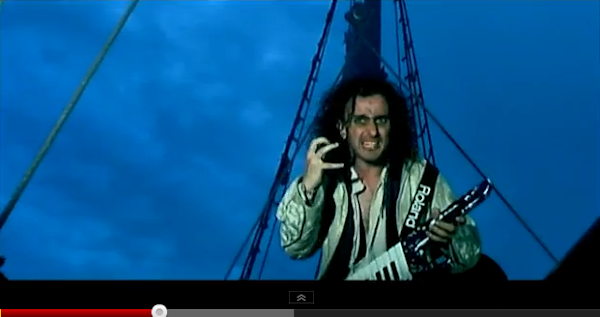While the pirate campaign launch is still to happen down at Lake Burley Griffin the pirates have released a slew of policies.
Most of it is unlikely to get much argument but my god check this out:
The Pirate Party will seek to ensure that a proportion of Arts ACT grants are awarded
to artists who adopt creative commons licensing.
Forcing artists to give up the rights to their work in exchange for public funding?
And because it is talk like a pirate day:












